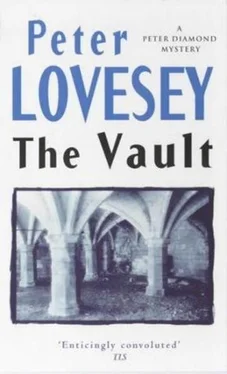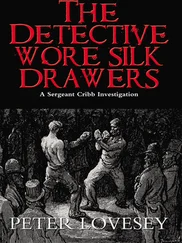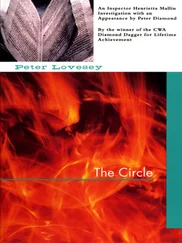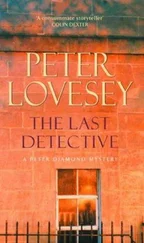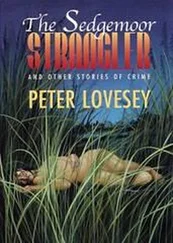"A medical student," said Diamond as if it were screamingly obvious. "They have to buy a skeleton, don't they? They used to, one time. They need them in their studies, anyway. All he has to do is remove the hand, plant it in thin cement and wait for it to be discovered. He'll be laughing his bloody head off tomorrow morning when he reads the papers."
"You think so?" Halliwell said, unimpressed.
Diamond backed off a little. "It's not impossible."
"It's a bit far-fetched, isn't it? For a start, he'd need to know about the Frankenstein link. Not many people did until this afternoon. You didn't, and nor did I."
"Someone made sure the press got onto it, didn't they?" Diamond said with more animation. "If there is a hoaxer, he must have tipped off the press. I got it from the News of the World, some wiseguy called Delany. John Delany. Who was his source, I wonder? It's got to be followed up."
Halliwell nodded and said almost apologetically, "If he spoke to you personally…"
"I know," said Diamond with a martyred air. "It's down to me."
But before he could do anything about it, he was called to the phone. The BBC wanted to know if he was willing to be interviewed on Newsnight, on BBC2 at 10.30 p.m. It could be prerecorded, if necessary.
He said he had nothing to add to the press statement he had already made.
There were two more requests for television interviews in the next half-hour. "You'd think I'd won the bloody lottery, wouldn't you?" he said to the woman on the switchboard. "They only want me to talk about a monster who never existed. Tell them I'm on a flight to the Bahamas, love, or washing my hair tonight. I leave it up to you. Anything to get them off my back."
"Like going to the ACC's party?"
"God, I am, too. It never rains but it pours."
ONLY A MAN OF Joe's dogged determination would have continued. Hands filthy from shifting furniture, breathing passages coated with dust, he progressed steadily through the rooms of Noble and Nude. He had long since lost a sense of where he was in the building. He ignored the other people browsing through the rooms. Just occasionally he would check his watch. Surely Donna would forgive him being late for dinner if he brought back Mary Shelley's writing box. Unfortunately he had not located it yet. Time had moved on to the point when he could not very well face Donna without some substantial find. So he continued to rummage.
There was another pressure. Peg Redbird's antennae were twitching. That remark about Abbey Churchyard meant she would not be long in making the connection with the Shelleys, if she had not already done so. No question: the writing box had to be found at this visit and carried away tonight.
Where was it, then?
A shock awaited him in the room where the wax woman sat on her swing. He actually nodded and was about to say, "Hi." So who's the dummy here? he thought. You, or me? Shaking his head, he got on with the search. Some time later he glared at the wax woman and moved on.
This was getting desperate. The light was going. He was tired, hungry and dispirited.
Then he struck gold. He might so easily have gone past. Folded up and covered in dust, the wooden box would not have attracted the attention of anyone who was not looking specially. It was in use as a plinth for a monstrous black vase big enough to have contained one of the Forty Thieves. To have supported such weight it must have been stoutly constructed. One glance at the side, where the hinged top section met the bottom in a diagonal, convinced Joe. Opened out, it would make the shape of a desk.
Unfortunately there was a problem. The vase. He couldn't get his arms around the thing. Shifting it even an inch was difficult.
He didn't want assistance. His plan was to examine that box in private. The only way of moving the vase was by tipping it on its edge and turning it. He would have to hope it didn't smash in the process.
Placing the copy of Milton on a window ledge behind him, he collected two large cushions from a settee in the next room and arranged them beside the box.
He grasped the rim of the vase, braced himself and hauled it towards him. There was movement. An ominous creak came from the box as the vase shifted off its base. He managed to stop it tipping too far and applied enough force to get it moving sideways. The task now was to drop the thing onto one of the cushions without either cracking it or crushing his feet.
He was not used to manhandling large objects. At first he managed the weight with ease, having found the point of balance. Then as he was rolling it towards the edge, the vase leaned a shade too far towards him. He was forced backwards. Instinctively he tugged at the rim to stop himself falling over. The inevitable happened. The massive shoulder of the pot thumped against his chest. He was powerless to hold it.
Disaster.
He went down.
The vase crashed on the cushion just to his left, missing him narrowly. The broadest part hit the floorboards and smashed. The sound must have carried through the entire building.
He said, "Jeez," and lay still, shocked and winded.
From somewhere downstairs, Peg's voice called out, "What happened?"
Some other visitor to the shop called back superfluously, "Something fell over, I think."
Somebody looked in and asked if Joe was all right. He answered that he was fine. Probably he was, apart from bruises. His elbows hurt and his backside was numb, but he could feel no sharp pain. He sat up, rubbing his left elbow.
The woman at the door said, "It's a wonder this isn't happening all the time, there's so much crammed in."
Joe murmured agreement.
"Are you all right?"
"Hundred per cent." He struggled to his feet and summoned a smile. "Better off than the vase."
"Let's hope it isn't valuable."
"It isn't any more." Quick footsteps sounded on the stairs and Joe had an impulse to grab the precious writing box of the floor and hide it from Peg. He was sure, however, that when she saw the broken vase she would remember what it had been standing on.
He stood like a schoolkid whose baseball has smashed a window, trying to think of some excuse.
Peg arrived. The first thing she said was, "What was it?" The second thing: "Oh, it was you."
"My fault, ma'am," he admitted. "All my fault. Shouldn't have tried to move it. I'll pay for the damage. Is it insured?"
"You're joking, ducky," Peg told him. "I can't afford to insure this lot." Her eyes took in the whole scene. "You found the box, then. I should have remembered it was here."
"Like an idiot, I tried to remove the vase. Was it a special piece?"
"Egyptian," said Peg.
"Oh, my God." Thousands of years of history were lying in pieces at his feet. "How much was it worth?"
"How much is anything worth?" said Peg indifferently. "Only as much as someone is prepared to pay. This has been here for years. Nobody ever made me an offer."
"If it's from Ancient Egypt, some museum would have been glad to own it."
"Ancient Egypt!" said Peg. "Who said Ancient Egypt? This only goes back to 1924. It was made for the British Empire Exhibition at Wembley. The Egyptian Pavilion. It's a cheap imitation, ducky. I can live without it."
Deeply relieved, Joe said it was still his fault and he ought to pay compensation.
But Peg was dismissive. "Forget it. Open up the writing box and I'll tell you if it's the one your book was in."
He needed no more encouragement. His hands were shaking, whether from shock or anticipation he didn't know. He felt for the fastening and found it was a brass plate with a lock. "It won't open. Do you have the key?"
Peg rolled her eyes upwards. "Now you're asking."
"You must have had it when you looked inside."
Читать дальше
